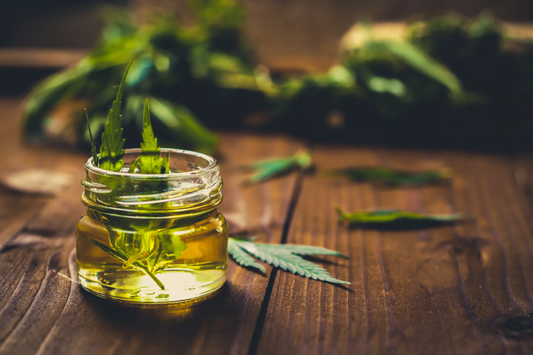In recent years, there has been a surge of interest in cannabis-related products, primarily CBD (cannabidiol) and THC. Both come from the cannabis plant, but they have vastly different properties and uses. This article delves into the contrasts between CBD and THC, shedding light on their distinct characteristics, benefits, and potential risks.
CBD: The Non-Psychoactive Compound
CBD, short for cannabidiol, is one of the many chemical compounds found in the cannabis plant. Unlike its counterpart THC (tetrahydrocannabinol), CBD does not produce the characteristic 'high' associated with THC use. Instead, CBD is celebrated for its therapeutic properties. It interacts with the endocannabinoid system in the body, influencing various physiological processes, including pain perception, mood, and immune function.
Potential Benefits of CBD
Pain Management: CBD has gained popularity for its analgesic properties, making it an attractive option for people dealing with physical discomfort.
Mood disorders: Studies suggest that CBD might have anxiolytic and mood-boosting effects, potentially helping individuals manage mood disorders.
Neuroprotective Properties: Research indicates that CBD could have neuroprotective properties, potentially beneficial for issues dealing with focus and memory.
Anti-Inflammatory Effects: CBD exhibits anti-inflammatory properties, making it possibly beneficial in managing problems like digestive issues.
THC: The Psychoactive Compound
THC, on the other hand, is known for its psychoactive effects, primarily due to its ability to interact with CB1 receptors in the brain. When consumed, THC binds to the brain's receptors, altering sensory perception and inducing a euphoric state. This psychoactive property has led to THC's recreational use and, in some cases, its medicinal use, especially in pain management and eating disorders.
Recreational vs. Medicinal Use
Recreational Use: THC is commonly used recreationally, often smoked or consumed in various forms, including edibles and concentrates. Its psychoactive effects can lead to altered perception, relaxation, and increased sensory awareness, making it popular in social and recreational settings.
Medicinal Use: While THC's psychoactive effects can be recreational, they are also medically beneficial. Medical THC, or medical cannabis, is prescribed to patients for helping with problems like pain management, sleep cycle issues, and eating disorders.
Legality and Regulations
The legality of both CBD and THC varies widely across the globe. In many places, CBD extracted from industrial hemp (a type of cannabis plant with low THC content) is legal, provided it contains less than 0.3% THC on a dry weight basis. This has led to a booming market for CBD products, including oils, capsules, gummies and topical treatments.
THC's legality depends on individual country or state regulations. In some places, cannabis containing high amounts of THC is entirely legal for recreational and medicinal use. In others, it's restricted to medicinal use only, and in some areas, it remains entirely illegal. These varying regulations reflect the ongoing debate about the potential risks and benefits associated with THC use.
Potential Risks and Side Effects
While both CBD and THC offer various benefits, they are not without risks, just as all herbal supplements and prescription medications are not without risks. Some potential side effects of CBD include diarrhea, reduced appetite, drowsiness, and interactions with certain medications. It's crucial for individuals to consult healthcare professionals before incorporating CBD into their routine, especially if they are on other medications.
THC, due to its psychoactive nature, can impair cognitive function, coordination, and judgment. Regular use can lead to adverse mental health effects, particularly in individuals predisposed to mental disorders. Additionally, smoking THC can harm lung health, similar to tobacco smoke.
Conclusion
In summary, CBD and THC are distinct compounds with different properties and uses. CBD, non-psychoactive and derived primarily from hemp, offers various therapeutic benefits without the 'high' associated with THC. It has found applications in managing pain and mood disorders, improving sleep cycles, and supporting cognitive and joint health.
THC, with its psychoactive effects, is used both recreationally and medicinally. While it offers natural relief for pain management and eating disorders, its recreational use poses some risks related to mental health and impaired cognitive function.
As the research into cannabis-related products continues, it's essential for individuals to make informed decisions regarding their use, considering their unique medical history and consulting healthcare professionals when needed. Whether it's CBD or THC, responsible use and understanding the potential benefits and risks are key to harnessing the full potential of these fascinating compounds derived from the cannabis plant.


